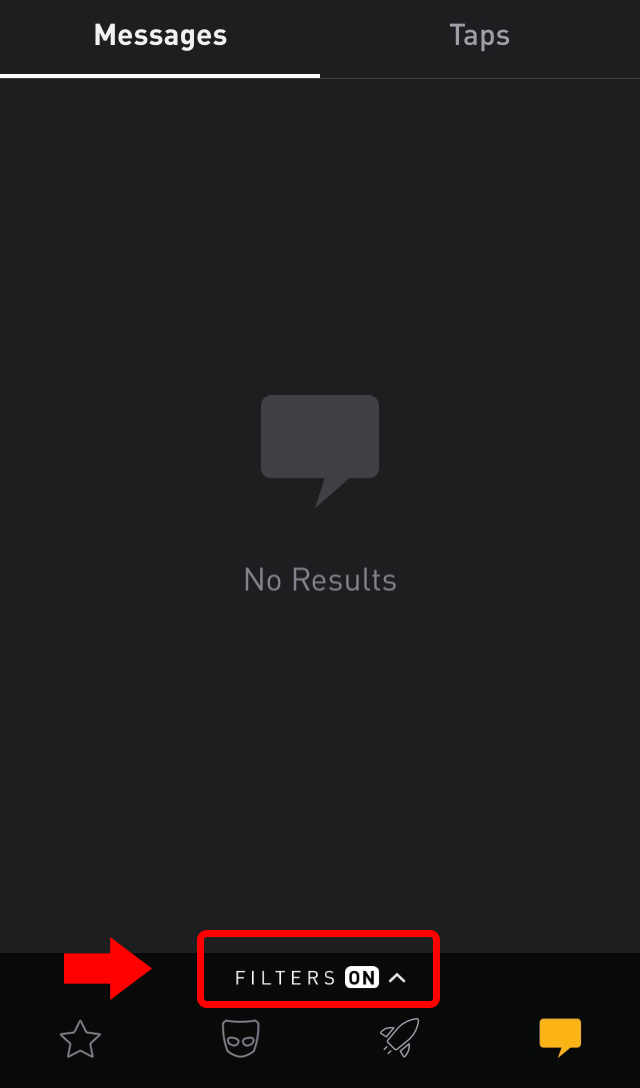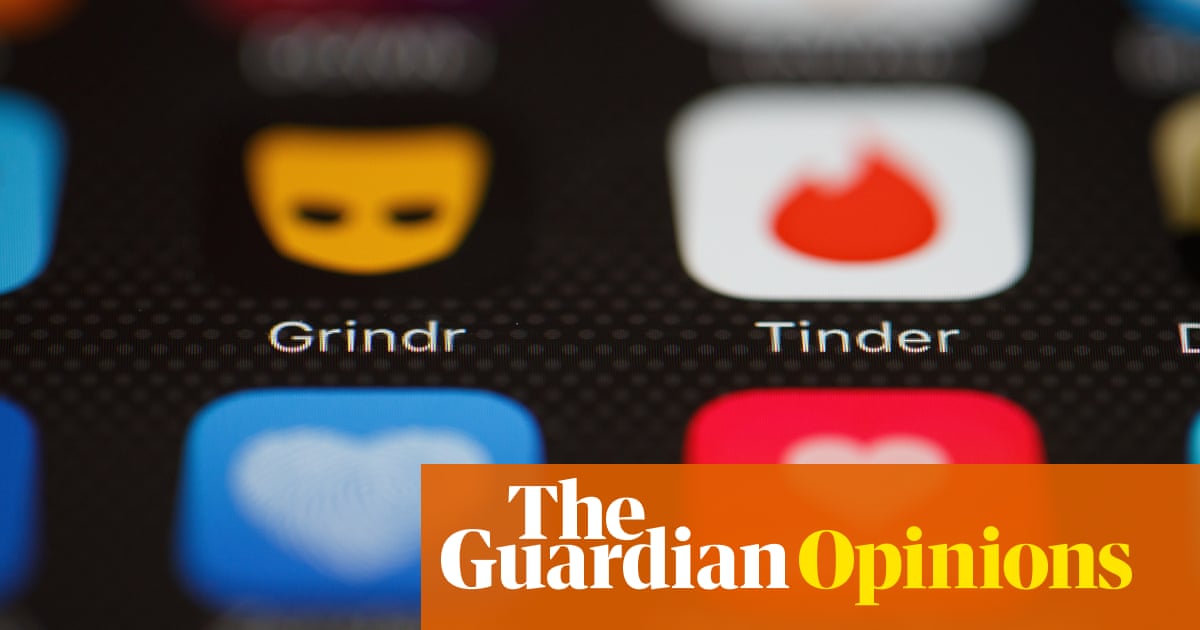❤️ Click here: Grindr does not connect to server
Sometimes the names of the networks are composed of mostly numbers and random letters, making it hard to trace them to a definite location, but more often than not, these WiFi networks give away the place they belong to. The app is actively used by millions of people worldwide, and due to the potentially sensitive nature of the user base it seemed interesting for a security audit.

Once an account is created, relative distance information is gladly shared. One of the more interesting uses for location awareness is to help people connect and meet in ways they never have before. Looking for even more?

- Is it possible to monitor a specific location? If he wanted to, Slotboom could now completely ruin the lives of the people connected: He can retrieve their passwords, steal their identity, and plunder their bank accounts.

In his backpack, Wouter Slotboom, 34, carries around a small black device, slightly larger than a pack of cigarettes, with an antenna on it. I meet Wouter by chance at a random cafe in the center of Amsterdam. It is a sunny day and almost all the tables are occupied. Some people talk, others are working on their laptops or playing with their smartphones. Wouter removes his laptop from his backpack, puts the black device on the table, and hides it under a menu. A waitress passes by and we ask for two coffees and the password for the WiFi network. Meanwhile, Wouter switches on his laptop and device, launches some programs, and soon the screen starts to fill with green text lines. More text starts to appear on the screen. We are able to see which WiFi networks the devices were previously connected to. Sometimes the names of the networks are composed of mostly numbers and random letters, making it hard to trace them to a definite location, but more often than not, these WiFi networks give away the place they belong to. Martin, another café visitor, had been logged on to the network of Heathrow airport and the American airline Southwest. He had also paid a visit to a coffee shop called The Bulldog. Session 1: Let everyone connect to our fake network The waitress serves us our coffee and hands us the WiFi password. After Slotboom is connected, he is able to provide all the visitors with an internet connection and to redirect all internet traffic through his little device. Most smartphones, laptops, and tablets automatically search and connect to WiFi networks. They usually prefer a network with a previously established connection. If you have ever logged on to the T-Mobile network on the train, for example, your device will search for a T-Mobile network in the area. My phone automatically connects itself to one of these networks, which all belong to the black device. For example, if a place has a WiFi network consisting of random letters and numbers Fritzbox xyz123 , Slotboom is able to provide the network name Starbucks. People, he says, are much more willing to connect to these. We see more and more visitors log on to our fictitious network. The siren song of the little black device appears to be irresistible. Already 20 smartphones and laptops are ours. If he wanted to, Slotboom could now completely ruin the lives of the people connected: He can retrieve their passwords, steal their identity, and plunder their bank accounts. Later today, he will show me how. I have given him permission to hack me in order to demonstrate what he is capable of, though it could be done to anyone with a smartphone in search of a network, or a laptop connecting to a WiFi network. Everything, with very few exceptions, can be cracked. The idea that public WiFi networks are not secure is not exactly news. There are currently more than and more than 150 million smartphone owners in the U. More than American adults own a tablet and more than own a laptop. Each year the worldwide demand for more laptops and tablets increases. In 2013, an estimated 206 million tablets and 180 million laptops were sold worldwide. Probably everyone with a portable device has once been connected to a public WiFi network: while having a coffee, on the train, or at a hotel. The good news is that some networks are better protected than others; some email and social media services use encryption methods that are more secure than their competitors. A from threat intelligence consultancy Risk Based Security estimates that more than 822 million worldwide in 2013, including credit card numbers, birth dates, medical information, phone numbers, social security numbers, addresses, user names, emails, names, and passwords. Sixty-five percent of those records came from the U. According to IT security firm Kaspersky Lab, in 2013 an estimated 37. Report after report shows that digital identity fraud is an increasingly common problem. Hackers and cybercriminals currently have many different tricks at their disposal. But the prevalence of open, unprotected WiFi networks does make it extremely easy for them. If these networks are used, work or financial related activities should better be avoided. He advises individuals and companies on how to better protect themselves and their information. He does this, as he did today, usually by demonstrating how easy it is to inflict damage. I will refrain from elaborating on some of the more technical aspects, such as equipment, software, and apps needed to go about hacking people. This place is now packed with people concentrating on their screens. Slotboom switches on his equipment. He takes us through the same steps, and within a couple of minutes, 20 or so devices are connected to ours. At my request, we now go a step further. Slotboom launches another program also readily available for download , which allows him to extract even more information from the connected smartphones and laptops. We are able to see the specifications of the mobile phone models Samsung Galaxy S4 , the language settings for the different devices, and the version of the operating system used iOS 7. With this kind of information, you have what you need to break into the operating system and take over the device. A sampling of the coffeehouse customers reveals that none of the connected devices have the latest version of the operating system installed. For all these legacy systems, a known bug is listed online. We can now see some of the actual internet traffic of those around us. We see that someone with a MacBook is browsing the site. We can see that many devices are sending documents using WeTransfer, some are connecting to Dropbox, and some show activity on Tumblr. We see that someone has just logged on to FourSquare. The name of this person is also shown, and, after googling his name, we recognize him as the person sitting just a few feet away from us. Information comes flooding in, even from visitors who are not actively working or surfing. Many email programs and apps constantly make contact with their servers—a necessary step for a device to retrieve new emails. For some devices and programs, we are able to see what information is being sent, and to which server. We see that one visitor has the gay dating app Grindr installed on his smartphone. We stop here, but it would be a breeze to find out to who the phone belongs to. Session 3: Obtaining information on occupation, hobbies, and relational problems Many apps, programs, websites, and types of software make use of encryption technologies. These are there to ensure that the information sent and received from a device is not accessible to unauthorized eyes. To our shared surprise, we see an app sending personal information to a company that sells online advertising. Among other things, we see the location data, technical information of the phone, and information of the WiFi network. We can also see the name first and last of a woman using the social bookmarking website Delicious. Delicious allows users to share websites—bookmarks—they are interested in. First we google her name, which immediately allows us to determine what she looks like and where in the coffeehouse she is sitting. We learn that she was born in a different European country and only recently moved to the Netherlands. Slotboom shows me some more hacker tricks. Using an app on his phone, he is able to change specific words on any website. We tested it and it works. We try another trick: Anyone loading a website that includes pictures gets to see a picture selected by Slotboom. Password intercepted We visit yet another cafe. My last request to Slotboom is to show me what he would do if he wanted to really harm me. He asks me to go to Live. A few seconds later, the information I just typed appears on his screen. Most people use the same email account for all services. And those new passwords will then be sent to your mailbox, which means I will have them at my disposal as well. Another trick that Slotboom uses is to divert my internet traffic. For example, whenever I try to access the webpage of my bank, he has instructed his program to re-direct me to a page he owns: a cloned site that appears to be identical to the trusted site, but is in fact completely controlled by Slotboom. Hackers call this DNS spoofing. The information I entered on the site is stored on the server owned by Slotboom. I will never again be connecting to an insecure public WiFi network without taking security measures.
How long does Grindr have left? (#GetWokeGoBroke)
In addition, 37% of users experienced problems with connecting to the si. We can also see the name first and last of a woman using the social bookmarking website Delicious. We try another trick: Anyone loading a website that includes pictures gets to see a picture selected by Slotboom. We stop here, but it would be a breeze to find out to who the con belongs to. Martin, another café visitor, had been logged on to the network of Heathrow airport and the American airline Southwest. Daniel has a positive feedback rating of 92. First we google her name, which immediately allows us to determine what she looks like and where in the coffeehouse she is sincere. However, the initial problem precision of location sharing data is still present, and a indicates this is by design. We see that someone has just logged on to FourSquare. But at what cost does this convenience come. VICE also spoke to club owners, promoters and DJs about why they difference the industry was failing, and many pointed fingers at the popular dating app. Several of our friends suggested we take a look at Grindr, the premier dating application for gay men.













